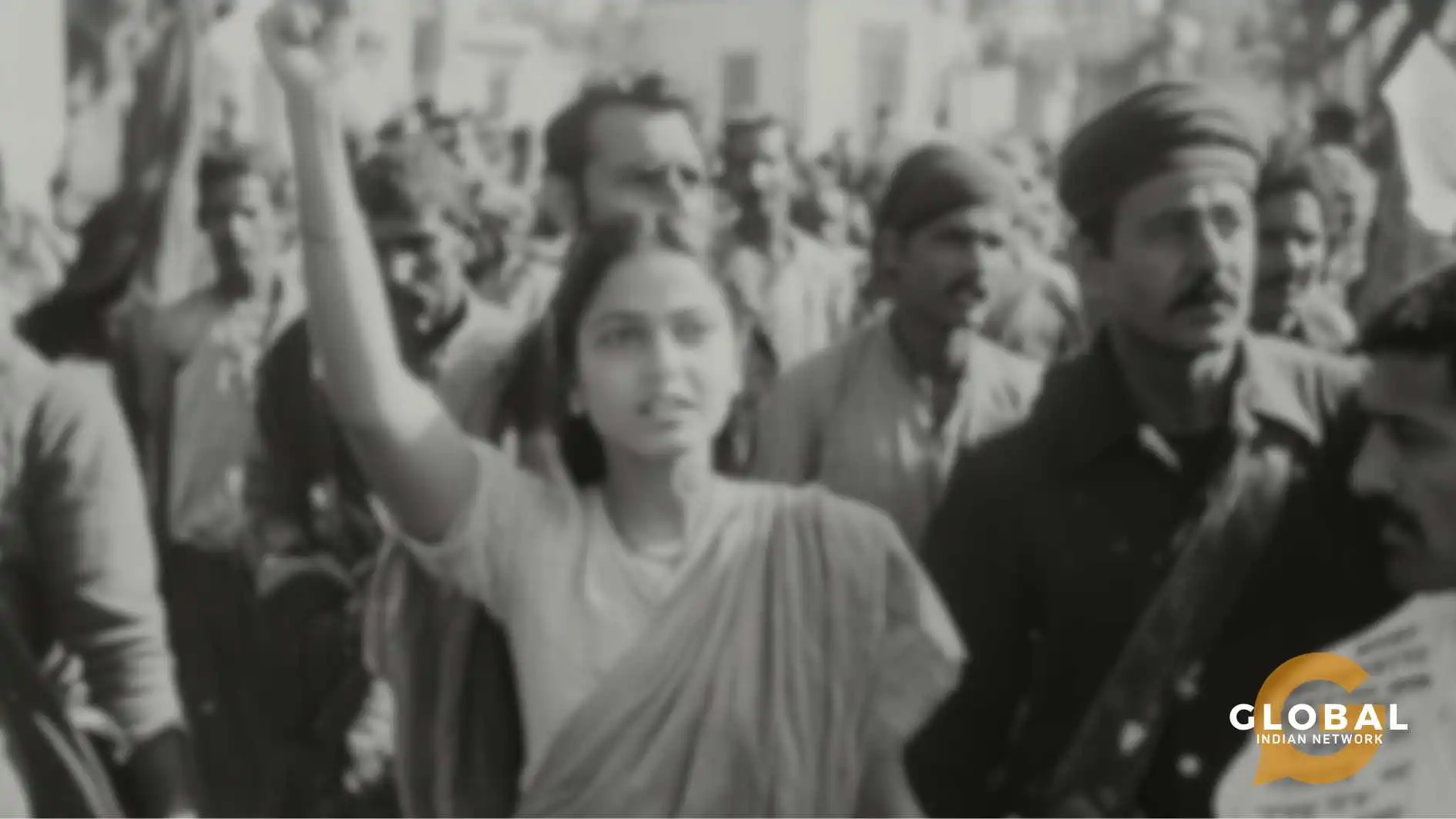What is the anti-colonial movement? It is a very broad-based political, social, and intellectual resistance to foreign power, particularly by European colonial powers. The anti-colonial movement began to come together the most strongly during the 19th and 20th centuries to unite colonized people on all continents in agreeing that freedom, autonomy, equality, and national sovereignty were theirs to keep and maintain. The anti-colonial movement was not strictly a revolutionary political endeavor but also a social and intellectual rejection of colonial ideologies, cultural domination, and economic extraction. Today, the anti-colonial movement is still relevant in many discussions around decolonization, justice, and responsibility.
Table of Contents
Understanding Colonial Rule and the Roots of Resistance
The definition of colonialism describes the relinquishment of control of the policies and actions of territories to powerful European nations. These empires, such as Britain and France, sought cheap labor and resources while securing claims against rival regions in Asia, Africa, and Latin America.
The introduction of the anti-colonial movement was initiated in the context of colonized nations holding onto their traditional rule in different local uprisings or revolts through the early period. In the context of the anti-colonial era in India, the massive rebellion in 1857 would symbolize the earlier storied anti-colonial context before colonial powers suppressed the resistance. These few regional uprisings changed into larger social movements that were organized under various forms of political ideologies, such as nationalism, socialism, and pan-Africanism. The most common disruption of the colonized status was based on the inequity of exploitation between the colonial nation-state and the original colonized states.
Many of the colonized nations were viewed as not only a source of raw materials but also as an immediate market for the manufactured products produced industrially by the colonizers. The economic destruction of traditional economies and the poverty of the colonized nations would serve as an impetus for an idea of economic independence before the onset of any true freedom.
ScienceDirect points out that anti-colonialism also created resistance to colonial ideals, including assumptions of the superiority of European culture and European government. Movements across the colonized globe began to re-appropriate indigenous systems of knowledge, indigenous languages, and indigenous identities.
The anti-colonial movement was not only about liberating land, but it was a movement to liberate the mind. Key to the resistance was nationalist consciousness, which was often supported by educated elites who had taken their education in colonial institutions and who committed themselves to ideas of democracy, equality, and self-rule. These elites appealed to the masses through newspapers, pamphlets, and speeches to build popular awareness.
While anti-colonialism emerged out of a collective discontentment with colonial rule, it developed into a coordinated series of struggles against political rule and cultural and economic suppression. Anti-colonialism provided the basis for the post-World War II wave of decolonization.

What Is the Anti-Colonial Movement: Global Struggles and Strategies
One cannot define what the anti-colonial movement is without considering its many forms and different geographies throughout history and methods, but with the same declared outcome: the end of colonialism. ScienceDirect refers to anti-colonialism as a moral and political repudiation of foreign occupancy.
In India, the movement was primarily non-violent under the leadership of Mahatma Gandhi, who actively resisted British occupation through civil disobedience and satyagraha. Mass civil struggles such as the Non-Cooperation Movement (1920), the Salt March (1930), and the Quit India (1942), which galvanized millions of people across India, instilled both a national consciousness and a sense of identity in Indians. Gandhi showcased that anti-colonialism can also be connected on a spiritual and ethical scale.
In Africa, the road to decolonization took many forms. Ghanaian leader Kwame Nkrumah managed to combine mass mobilization of the people with negotiation in achieving independence from Britain in 1957. Algerians experienced a nightmarish scene of war from 1954 to 1962 during their fight for independence from France. The People’s National Liberation Front (FLN) led a guerrilla insurgency that exposed the violent repression, “terror,” that accompanied this colonial oppression.
Colonized citizens who returned home, apprehending their freedom, fought for the ‘Allied Powers’ of the Western world. Their contradiction of confronting fascism abroad while being colonized at home spurred the demand for decolonization. The war weakened Europe’s economies and political structure to hold its colonized lands.
International organizations such as the United Nations provided a voice to the anti-colonial voices of the world. The 1960 UN Declaration on the Granting of Independence to Colonial Countries and Peoples recognized and legitimized the struggles to gain independence as a key diplomatic victory.
Anti-colonial movements also built transnational solidarity and new forms of internationalism. The Non-Aligned Movement, founded by leaders such as Nehru, Tito, and Nasser, presented a unified response for newly formed states faced with the threat of Western imperialism on one side and Soviet imperialism on the other during the Cold War.
The often combined struggles against colonialism throughout Latin America, the Caribbean, and Southeast Asia showcased their synergistic relationship with socialist and revolutionary thought. In Vietnam, Ho Chi Minh led a struggle over a vast number of years for the demise of failed French imperialism, which progressed to conflict against American imperialism within the region, thus expanding their anti-colonial objectives into a more encompassing critique of imperialism.
Why the Anti-Colonial Movement Still Matters Today
Although the majority of colonies had achieved independence by the end of the 20th century, the ideas and dilemmas posed by anti-colonialism remain highly relevant. Understanding what the anti-colonial movement means in today’s world means understanding how its legacy influences contemporary battles for justice, equality, and identity.
IGNOU’s Unit 13 highlights that post-independence issues related to poverty, inequality, and neocolonialism are still present. In many instances, former colonies are still economically tied to their former colonial rulers via international trade, debt, and foreign aid. As a result, many scholars have suggested there might be “neocolonialism” still, whereby dominion is maintained not via political subjugation, but dominion is retained via financial and cultural means.
As pointed out by ScienceDirect, we are seeing the continuing influence of anti-colonial thought in emerging present-day movements. This is particularly seen in calls to decolonize systems in which people are embedded, such as education, politics, and public agencies. Universities are revisiting their curricula as we see a shift in emphasis from Eurocentric systems and stories to stories and knowledge systems of indigenous people, while also centralizing marginalized voices at the forefront.
Calls for reparations for slavery and colonial exploitation are now starting to gain support on a global scale. Former colonies are now demanding accountability for historical injustices and want to bring closure to those injustices, and these injustices that are still impacting society economically and socially today.
Recent social movements such as Black Lives Matter, Indigenous sovereignty movements, and climate justice movements frequently embrace anti-colonial ideas. The demands for land rights, cultural rights, and political representation are based, in just that same way, on anti-colonial principles.
More specifically, the anti-colonial texts and theories from theorists such as Frantz Fanon, Edward Said, and Ngũgĩ wa Thiong’o remain important for post-colonial studies and help us as scholars to recognize how colonial ideologies continue to shape our present.
As such, labelled as a moment, the anti-colonial movement was much more than a historical phase in the thinking about politics, as it was a process of transformation that left a lasting mark on how the world goes about understanding power, justice, and freedom. The lessons it provides are still germane to how we might build a more inclusive and equitable global order.
Conclusion
In answering the question, what is the anti-colonial movement? We unpack an arduous and enduring experience of resistance against political, cultural, and economic oppression. Based on the experiences of colonized peoples around the world, the anti-colonial movement shaped the global experience and changed the course of the 20th century. We see the enduring spirit of anti-colonialism in the ongoing struggles for equality and justice and the decolonization of people, minds, and systems. As the world has found its place grappling with extreme inequality and different forms of systemic oppression, anti-colonialism challenges us to remember that, in addition to having independence, a person must always work towards freedom through continuous observation, action, imagination, and resistance.

FAQs
What is the role of the anti-colonial movement?
Anti-colonialism can generally be described as a theoretical orientation and practice that seeks to resist and dismantle colonial regimes, systems, and ideologies. While it aligns with decolonization, it chiefly concerns contesting colonial systems, rather than imagining a society free from colonialism.
What were the causes of anti-colonial movements in the twentieth century?
The effects of the World Wars and competition among nationalists, as well as economic conditions, contributed to increasing anti-colonial sentiments. There were important movements in India, Africa, and Southeast Asia that were characterized by a range of non-violent resistance strategies to armed liberation, which changed the global balance of power.
What are the characteristics of anti-colonial movement?
Anti-Colonial Movement successfully exploited nationalist sentiments by creating a collective identity for colonised peoples based on histories, cultures and imagined futures of independence. They framed arguments that local people had both the right to rule themselves and the right to preserve their identity.









